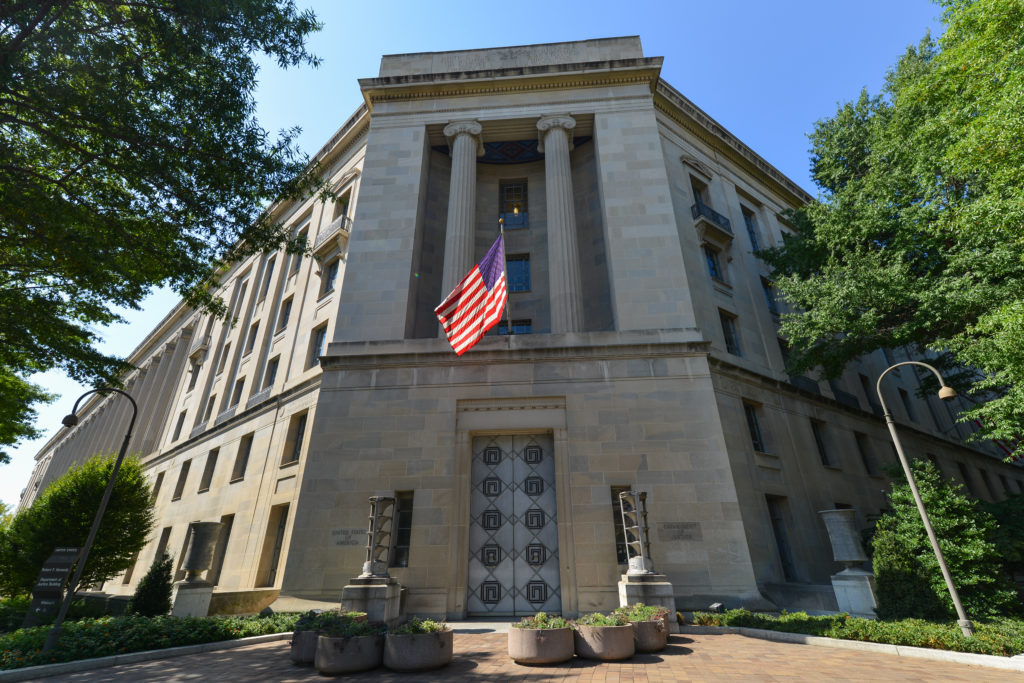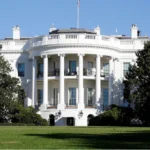
Published September 16, 2021
When the Supreme Court allowed the Texas Heartbeat Act to go into effect, Planned Parenthood and its fellow abortionists lost the first round in a new fight for life in the state. As a result, unborn children’s hearts that would have been stopped by chemicals, forceps or vacuums continue to beat today.
Instead of praising this development, our radically pro-abortion president has mobilized the entire federal government to undo it. Joe Biden has sent Big Abortion reinforcements via the U.S. Department of Justice (DOJ), which just sued Texas over the heartbeat law. DOJ’s lawsuit is so riddled with holes that it will likely lose at the Supreme Court just as Planned Parenthood’s suit did. Most troubling of all, Biden and his DOJ are not just going after Texas, but Texans. All of them.
As I’ve discussed elsewhere, the Texas heartbeat law deprived abortion activists of their most treasured weapon—the ability to have liberal judges block pro-life laws based on nothing more than creative hypotheticals. Now, for the first time in forever, the Supreme Court is requiring abortion clinics to prove their claims with actual post-enforcement facts. Because the Heartbeat Act allows private citizens to sue, abortion clinics have drastically scaled back their operations for fear of being fined and not getting their money back if or when they lose at the Supreme Court.
For all the bluster about Roe v. Wade being a matter of women’s rights, note how quickly clinics abandoned the clients they claim to champion once their profits were actually at stake. So naturally, Planned Parenthood and other abortionists have asked their friends in the Biden administration to try again to block the law on their behalf so the cash can start flowing again.
DOJ argues that the Heartbeat Act is unprecedented because it turns citizens into what it tendentiously calls “bounty hunters.” Not so. Bounty hunters catch known criminals for a reward, sometimes with force, but here, all Texans can do is sue in court. They can only recover if they present evidence of lawbreaking. In short, they are whistleblowers. To be sure, they are incentivized to uncover abortionists’ violations of the law, but they are not authorized to sue any woman who has an abortion, legal or not.
Laws incentivizing whistleblowers in this way date back to the American Revolution, were strengthened through the Civil War and exist today. The False Claims Act, for example, allows people to recover millions for uncovering and proving contractor fraud against the United States. Likewise, for decades activist groups have been enforcing civil rights laws by sending undercover testers, including with wires, to ferret out discrimination in housing. DOJ doesn’t call them “bounty hunters,” even though they can recover substantial attorney’s fees and damages for claims of frustration of mission and diversion of resources. To the contrary, the federal government funds these private enforcers and DOJ partners with them in lawsuits. (I know because I was the attorney adviser for the DOJ Civil Rights Fair Housing Testing program under President Barack Obama).
If you have ever seen a notice about chemicals in consumer products “known to the state of California to cause cancer or reproductive harm,” then you have experienced the effects of whistleblower suits first hand. Since 1986, California’s Proposition 65 has empowered citizens to sue companies and collect civil penalties when their product labels don’t inform consumers of the presence of certain chemicals. These suits have spurred companies to closely examine the chemicals in their products and remove those with a link to cancer or provide consumers notice.
Whistleblower citizen suits have always been part of the fabric of American law. Folks on the Left are only objecting now because it is being applied against something they consider sacrosanct—namely, abortion.
Because abortion clinics can’t rely on their old playbook to block pro-life laws, they have called DOJ in as a ringer. Despite throwing the full weight of the federal government behind its suit against Texas, DOJ can bring nothing new to the table because the state does not enforce the heartbeat law; private citizens do. In an attempt to get around this ingenious feature, DOJ claims the law “deputized” every citizen of Texas as agents of the state and demands a federal court enjoin “all…private parties who would bring suit” under the law.
Giving citizens the power to sue and recover damages from lawbreakers doesn’t entitle them to carry some sort of Texas deputy badge. It doesn’t turn them into Dog the Bounty Hunter either. Like other whistleblower laws, the Heartbeat Act merely incentivizes them to uncover and prove serious wrongdoing. And there are few wrongs more terrible than intentionally stopping an innocent child’s heart.
Instead of waiting to see if a Texas citizen will bring an enforcement action with enough proof of a violation, DOJ seeks to enjoin every person in the state from filing a suit against any abortion clinic at the front end, no matter how egregious or blatant the violation. In the name of defending an invented constitutional right to abortion, Attorney General Merrick Garland wants to suspend an actual right found in the Constitution—the due process of law.
Judges enforce injunctions by monetary sanctions and sometimes even imprisonment for repeat offenses. But they cannot normally bind people who have not had a chance to defend themselves—much less bind people without ever informing them they are bound. Will Garland have the injunction he seeks personally served on every last citizen of Texas? It’s an outlandish idea, and surely he knows it will be rejected. But we can’t forget that this is about preserving abortion on demand under Roe, which means the normal rules need not apply.
Roger Severino is Senior Fellow at the Ethics & Public Policy Center where he directs the HHS Accountability Project. He was Director of the HHS Office for Civil Rights from 2017 to 2021.
Roger Severino is a former senior fellow at the Ethics and Public Policy Center.











